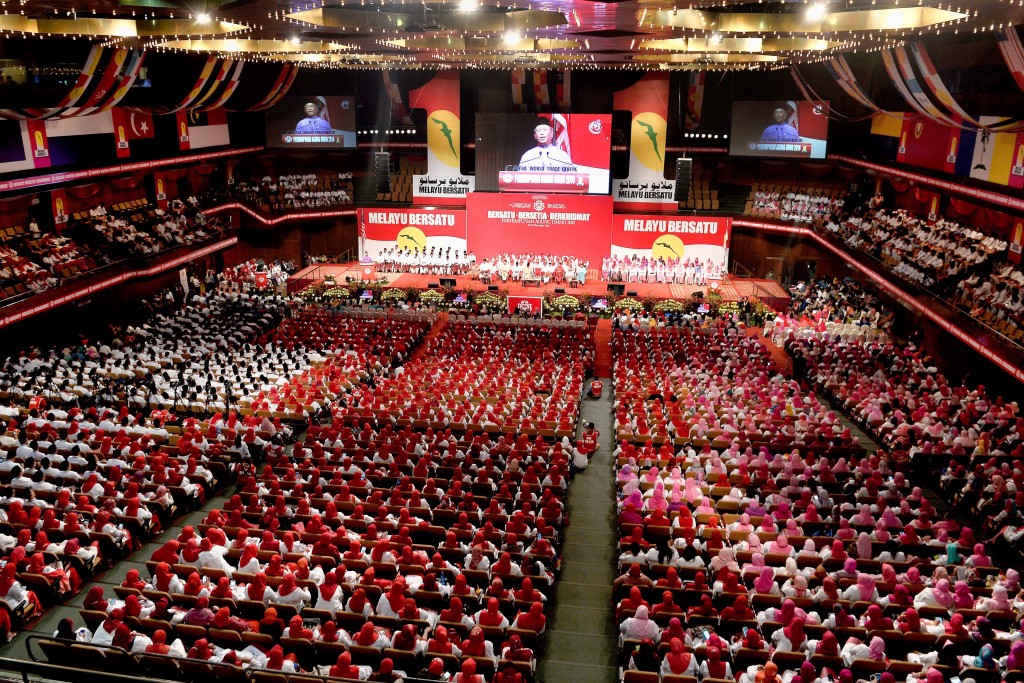Politics in Malaysia has always been a deeply emotional business. Political identities, as in many countries, transcend the constraints of ideology. Identity politics is a big driver of political discourse in Malaysia. In a country as diverse as this, this can cause severe problems. In Malaysia, it seems, old resentments are bubbling to the surface, threatening to implode the delicate balance of the country’s social order. Malaysia is home to an incredibly diverse population. 50% are Malay, 22.6% Chinese, 11.8% indigenous, 6.7% Indian, and 8.9% others and non-citizens. A rise in identity politics, and nationalist movements threatens to tip the country into social chaos – or does it?
Resurrection of old rivalries
 [via Malaysian Insider]
[via Malaysian Insider]
Malaysia has a long history of assimilating groups from other lands. Along with the ethnic Malay already present, Indians and Chinese began to settle in the early centuries AD. However, it was not until colonisation that Malaysia became the melting pot we know today. Labourers were brought from India and China to work in the colony’s tin mines and plantations, and became vital to the trading of the British Empire. In modern times, friction between the communities is mostly due to economic matters. Although the Malay account for half of the population, in 1970 they only received a 1% share of the national income. A raft of affirmative action measures by the Malay-dominated government sought to redress the balance, and increase it to 30% of national income by 1990. The wealth disparity between the different groups, and the government plans to ease the situation, have caused tension on all sides. Many Malay may feel that the country’s wealth is being kept from them by ‘foreign’ groups. The Chinese and Indian communities may feel that the government affirmative action plans discriminate against them. Neither grievance has been (or can be) easily addressed. The current government is a coalition, dominated by the UNMO, a Malay political party. As long as parties are formed along identity lines, these grievances cannot be resolved.
Prime minister Razak is a divisive figure
 [via Ghana Nation]
[via Ghana Nation]
Economic competition has spilled over into the political scene, and, interspersed with the politics of identity, make for a gruesome spectacle. At the end of August, an alleged 300,000 people rallied in Kuala Lumpur in a bid to force the prime minister Najib Razak to resign. The protesters were drawn almost wholly from Malaysia’s Indian and Chinese communities. Razak is particularly unpopular among the Chinese community, as it is alleged that in 2013 he implied they were to blame for a disappointing election result. An opposition party is Chinese-based. Decked in yellow t-shirts, the group camped out in the capital for two days, but to no avail. Prime Minister Razak remarked that the rest of the Malaysian population was on his side – and he may have been right. The ‘Red Shirt’ movement has been causing controversy, and it is a Malaysian nationalist group (allegedly with Islamist elements), firmly on the side of the prime minister and his administration. An upcoming rally is seen as a direct challenge and response to the anti-Najib protests of last month. The group has suggested its protests will turn violent, and has even prompted a response from the prime minister telling them that although the majority Malay must ‘demand respect’, they must refrain from displaying ‘sensitive words’ on banners, and not ‘provoke other races’. The prime minister is not the problem, but the Yellow Shirt/Red Shirt dynamic, and where their respective support lies, is a microcosm of the division in the country.
Potential terrorist threat
 [via Demotix]
[via Demotix]
The Red Shirts have already been accused of being an Islamist extremist group. However, it is suggested that a more present danger may be lurking in the country. Reports of a planned terrorist attack by ISIS have been circulating, ever since the Malaysian government claimed to have credible information about an upcoming attack. 10 suspected ISIS members were arrested by security forces last month, and the rumoured future attacks are said to be a form of retaliation. Whether these reports are true or not, they will only add to the tension already rife in the country. Threats from terrorist groups may lead to the Red Shirts being tarred by the same brush. Yellow Shirts may see these reports as proof that the government is giving impunity to terrorists in order to advance its own nationalist agenda. Divisions continue, as Malaysian politics becomes even more polarised. Could this be the moment when this historically diverse nation reaches its breaking point?





